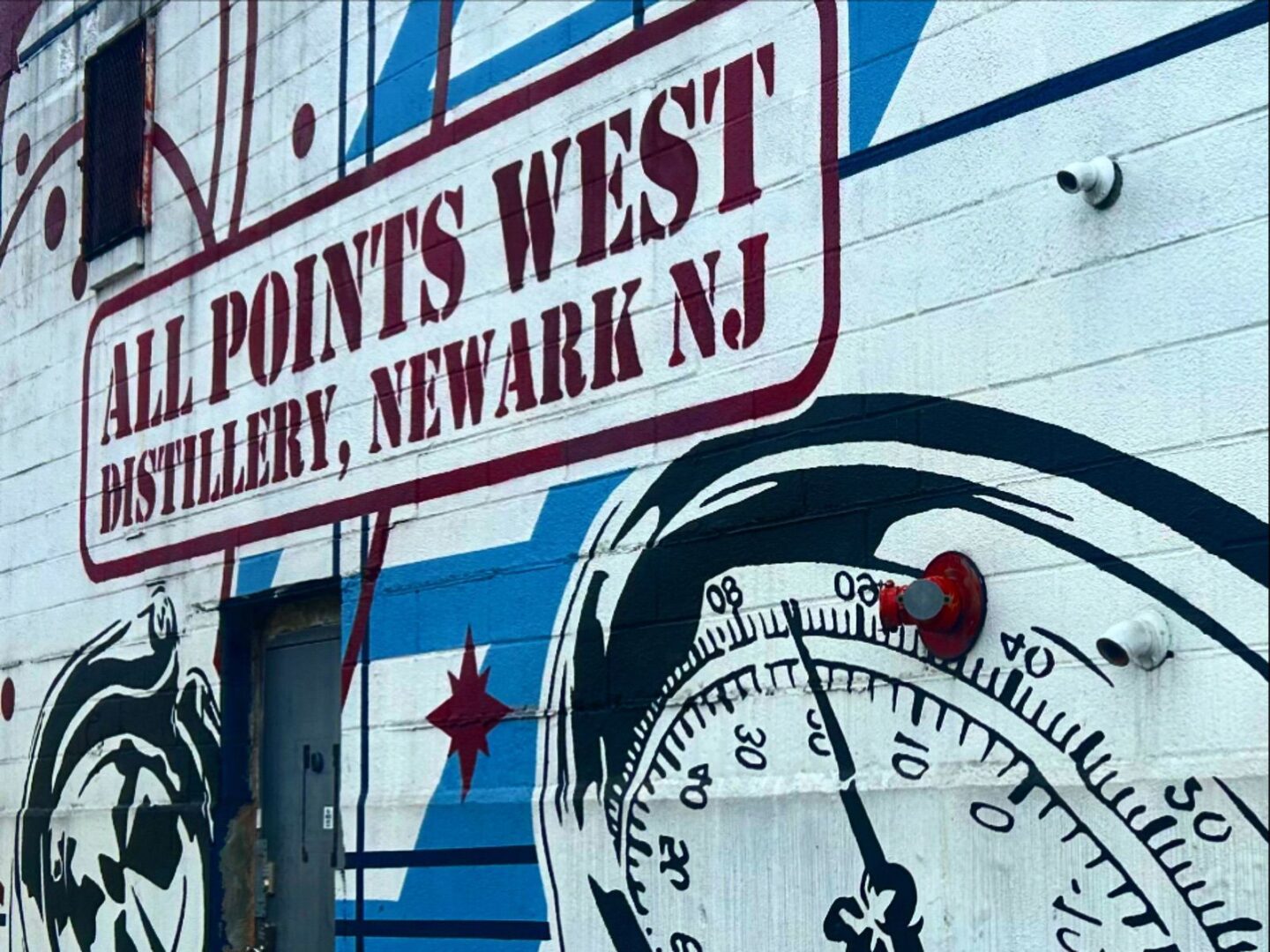
There’s nothing like the sweet, smokey, woodsy taste of bourbon. It is arguably the quintessential American spirit because it uses an ingredient native to the West – corn.
But this close relative of whiskey didn’t drop down from the sky. It was the result of centuries of experimentation with new distilling techniques and new ingredients.
Gil Spaier, owner of Newark’s All Points West Distillery, calls these bygone whiskey recipes “orphan styles” as they were eventually abandoned or regulated out of existence. Around 2017, he became so fascinated by the history of whiskey making that he recreated what he believes is a lost 19th-century spirit.
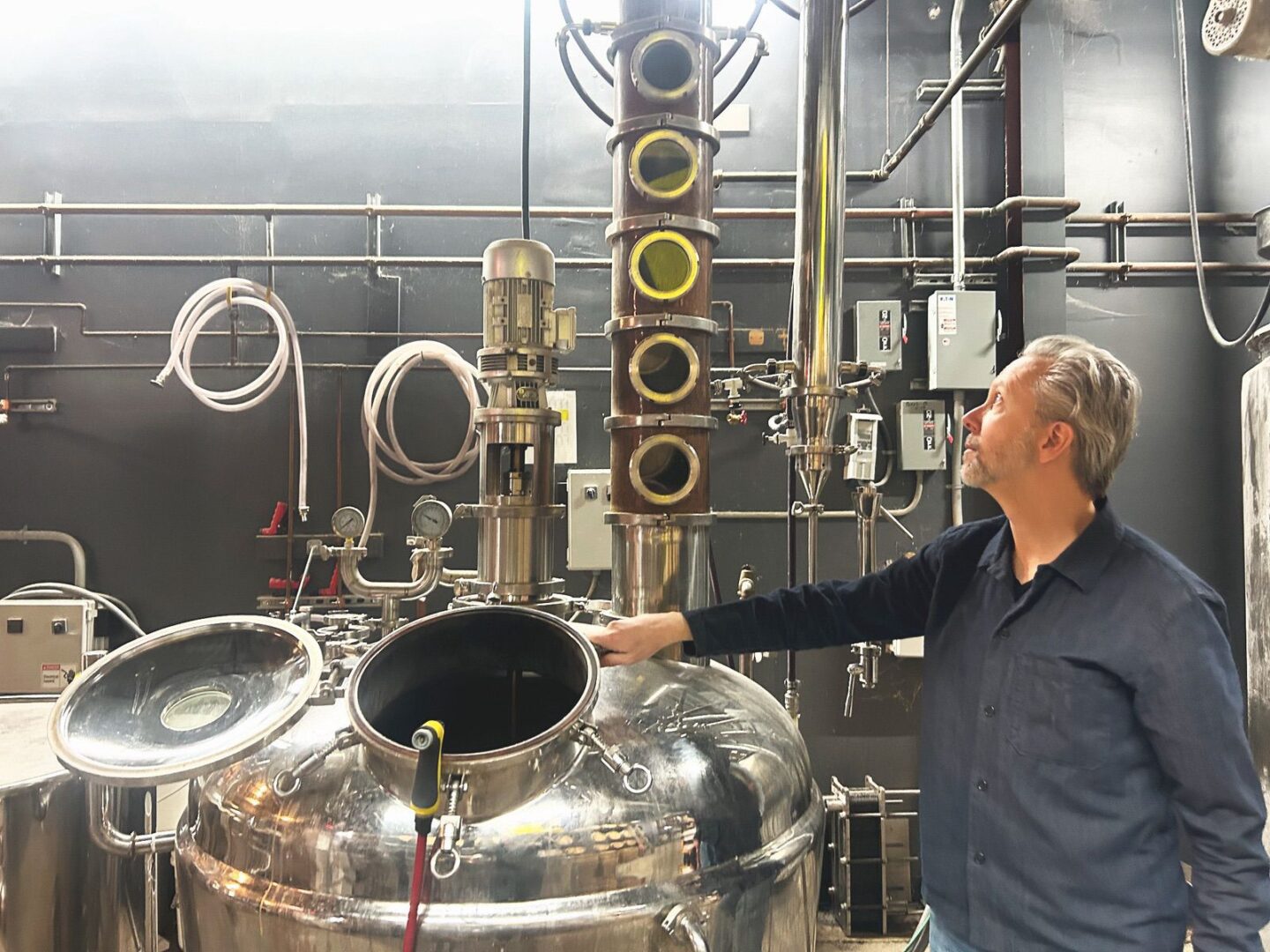
“I always wanted to make a good whiskey that nobody else was making,” Spaier said. “Then I found out there were spirits between bourbon and Irish whiskey. Nobody was making this between 1908 and 2017 when I opened my distillery.”
Spaier, a Newark resident for two decades, has always been a history buff and his modus operandi is reviving historical liquor recipes. He applies the same scholarly rigor as he did as an architect for the late preservationist Wayne Troyer, restoring some of the oldest buildings in New Orleans and New York City. His wish for a fresh start professionally intersected perfectly with his newfound hobby of tinkering with his own grain mill that his wife bought him.
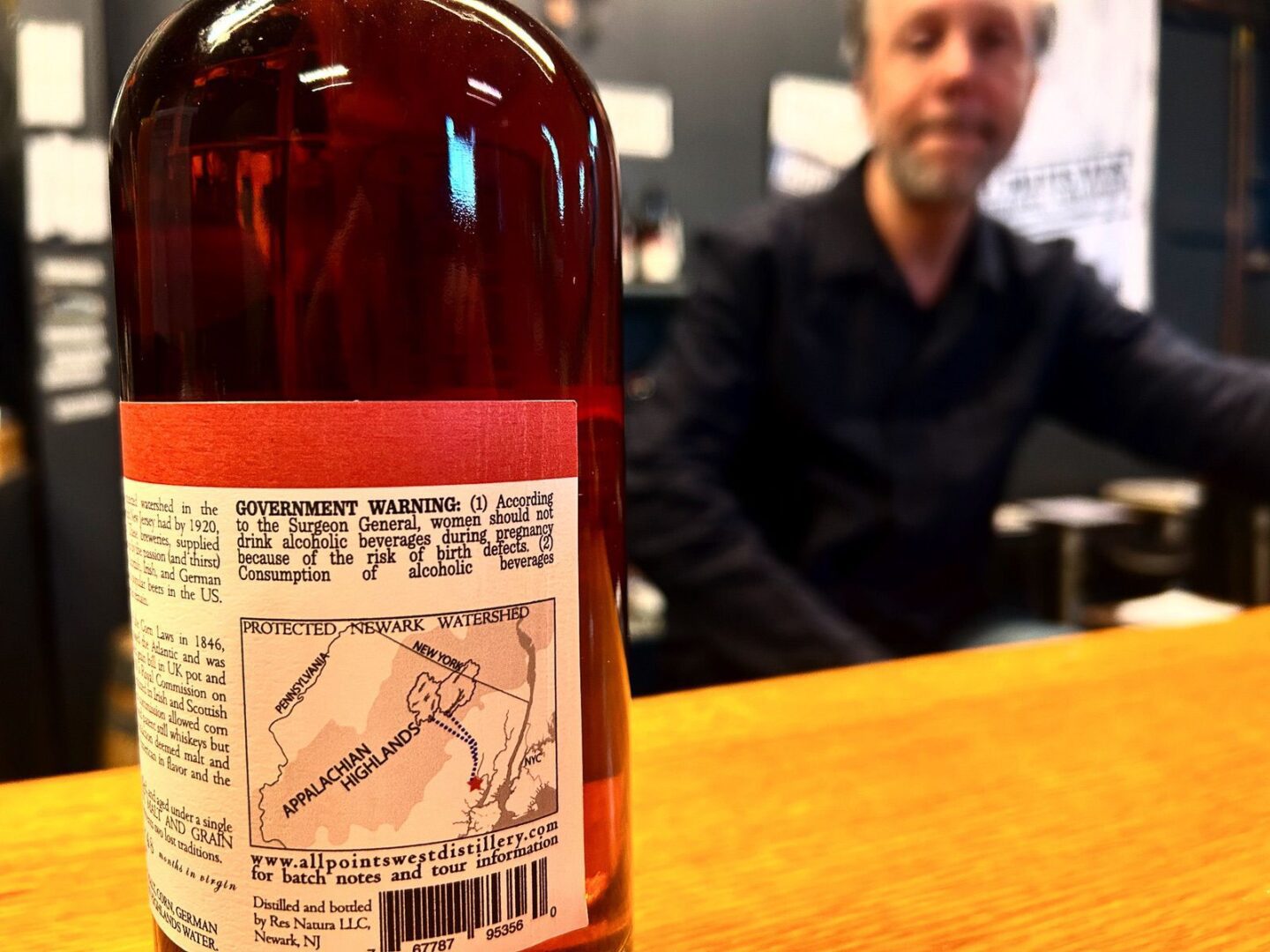
His love of Irish whiskey and his curiosity about what a guest at a 19th-century pub might have been sipping on was the source of Spaier’s inspiration for one of his best-loved labels: Malt and Grain Pot Still Whiskey. He believes it captures a blip in history when distillers back in Ireland began copying Americans by using ingredients like corn in their pot still whiskey. The use of corn lasted only until 1908 when, to preserve the identity of Irish whiskey, the recipe was outlawed.
“My favorite Irish whiskey is Redbreast,” Spaier said. “When I found out it could have been at one time much richer in corn character, I became excited about making one.”
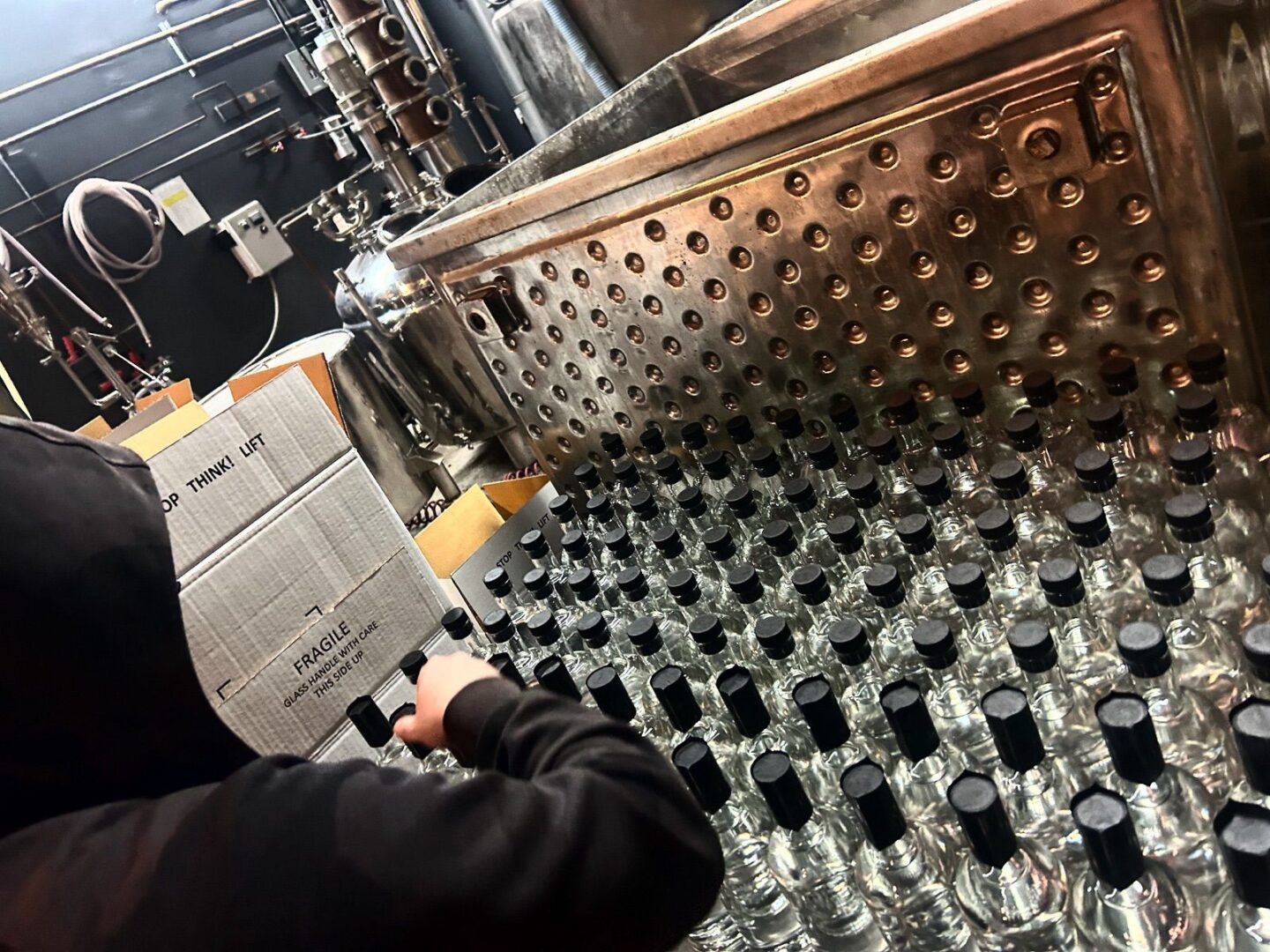
Spaier debuted his Malt and Grain Pot Still Whiskey in 2017 made of 30 percent corn and 70 percent malted barley and it has since won awards. It has more corn than traditional Irish whiskeys but doesn’t quite meet the threshold of a bourbon, which is defined as having more than 51 percent corn. He also has other award-winning spirits, including a corn-free mid-Atlantic rye whiskey, all of which patrons can order in his tasting room, which is open on Fridays from 5 p.m. to 10 p.m. and Saturdays during his distillery tours, which have to be booked in advance.
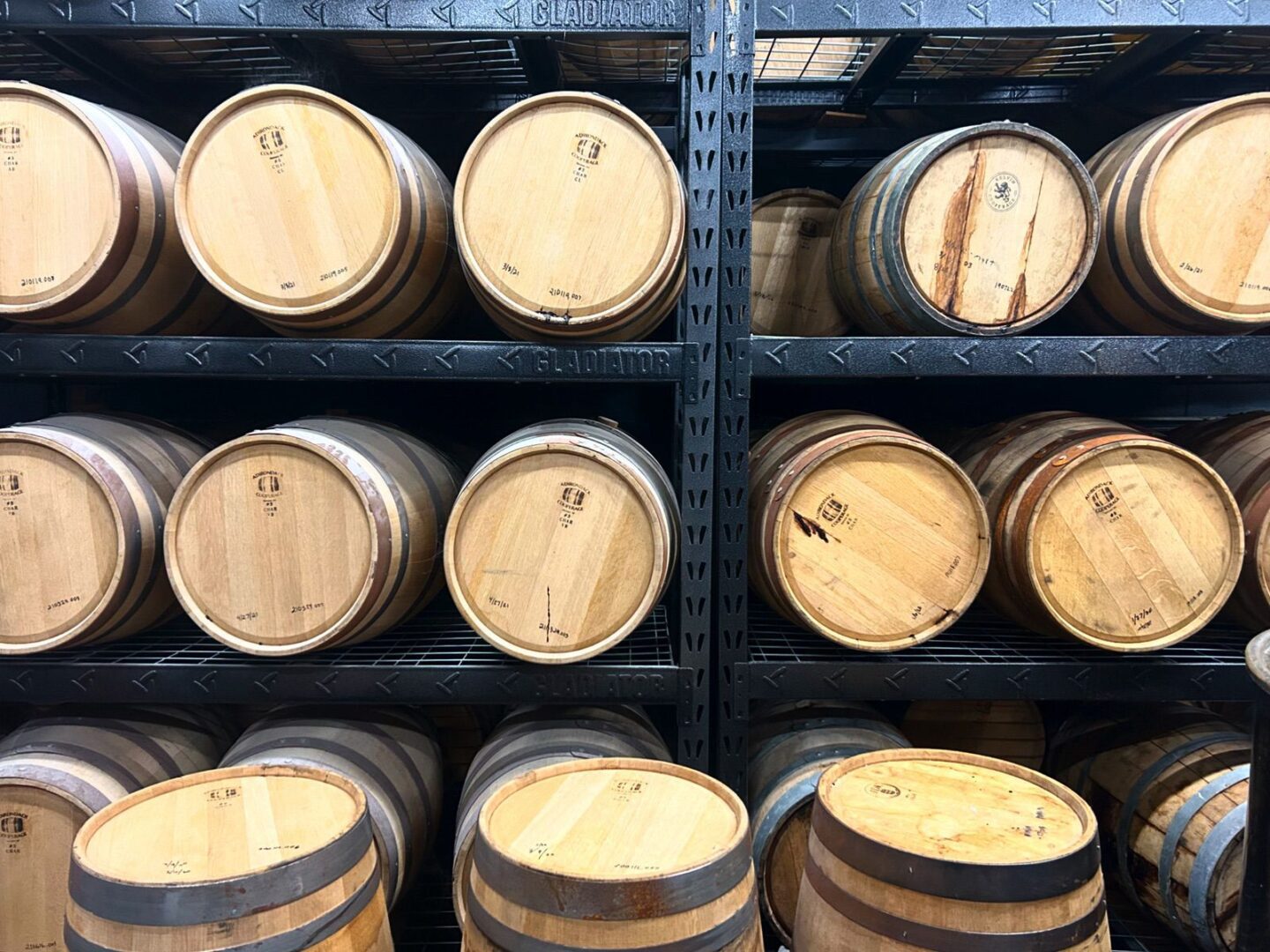
Spaier said the name of his distillery is a hat tip to the Irish, Scottish, and German immigrants who sought new lands in the West and combined old traditions with new resources that forever changed the flavor of spirits. The Newark Bay and Kill van Kull became host to a number of bygone breweries and distilleries — many of his bottle labels have tidbits of local history. Spaier proudly carries their torch as Newark’s only whiskey maker, as well as their fight.
In the old days, whiskey was a precious resource that many fought for when the federal government tried to regulate it with an iron fist, leading to the Whiskey Rebellion in 1791. Spaier believes the state government is once again coming down way too hard on the industry.
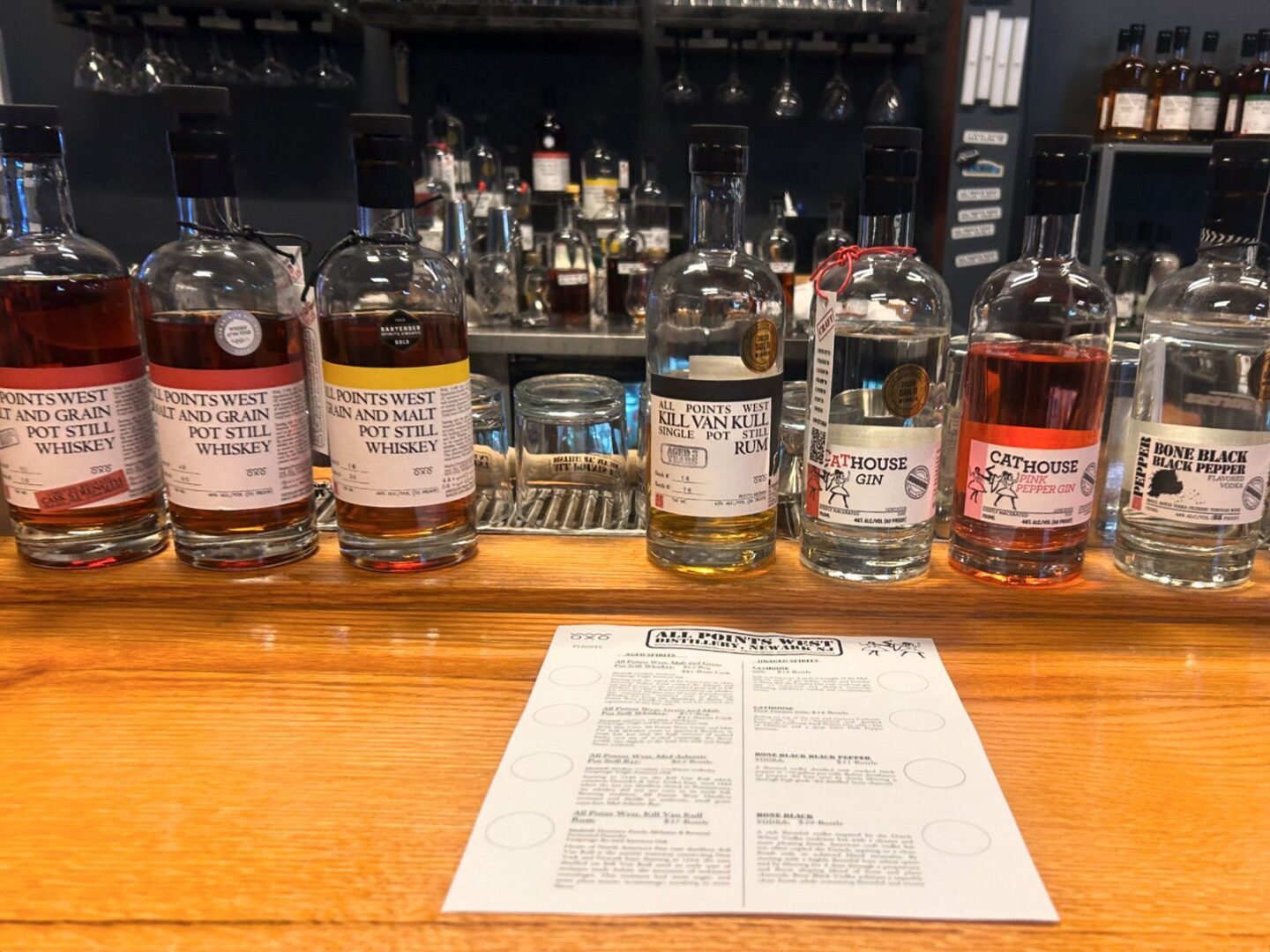
Gov. Phil Murphy recently signed into law a series of long-awaited reforms allowing craft breweries and distilleries to finally operate without a yoke of onerous rules around their neck. However, these new laws haven’t yet gone into effect. One of the restrictions in New Jersey that is stifling the industry, Spaier said, is that the state forbids local distillers to ship directly to consumers. All sales have to be made through the middleman of a retailer.
Meanwhile, some of the most successful distillers in New Jersey have either been sold or have shut down. Penelope was sold last year to MGP based in Lawrenceburg, Indiana. Corgi Spirits closed after a six-year run. It seems the region’s best out-of-the-box brands — such as Dad’s Hat and Wigle — are all based in Pennsylvania.
Spaier said his wholesale shipments can sustain him in the meantime — his whiskey can be found in Total Wine and other local shops — but other upstart distillers are fighting for their lives.
“Distillers want to make something more unique, but not all the retailers know what to do with it,” Spaier said. “People should wonder why this industry is not succeeding or why it’s succeeding in other states.”



